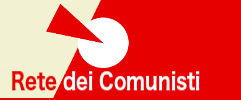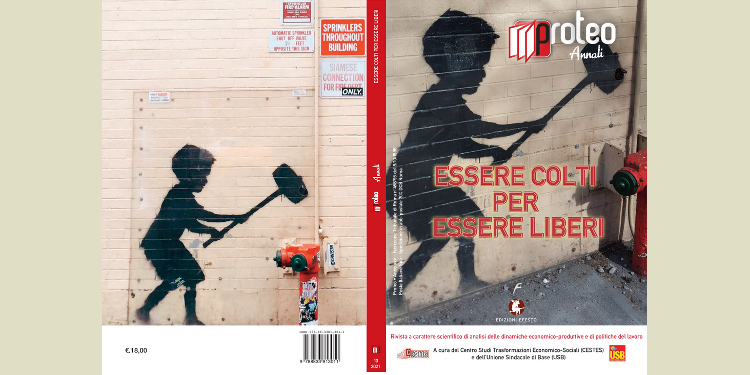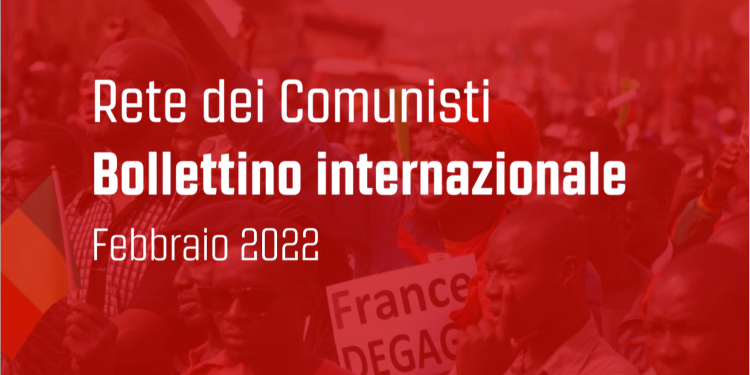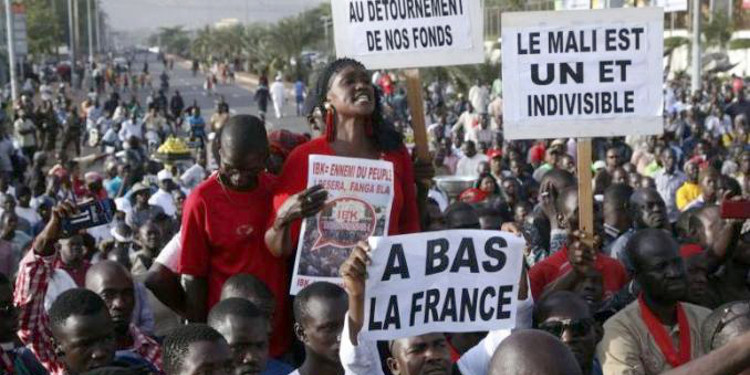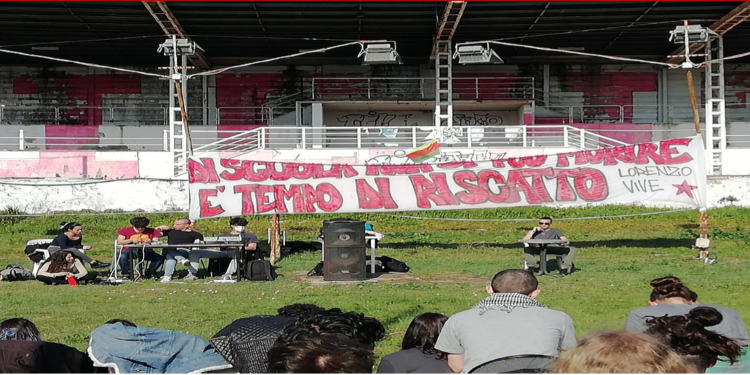| english | español | français | italiano |
Lorenzo Giustolisi, co-editor of the issue
We publish the introduction to the latest volume of the Cestes Study Centre’s journal, “Proteo”, whose title refers to a famous formula by José Martí: Be educated to be free. The issue is designed for the training of trade union cadres and produces an effort of analysis that is an integral part of the path that will lead to the Third National Congress of USB, which starts in these weeks and will end immediately after the summer.
This magazine and the work that underlies it have always sought to play a role within the union and the world of work. Providing tools for analysing, reading and intervening in the present, constructing an advanced point of view, deciphering the dynamics and explaining their root causes are the guiding principles of our work.
For a long time, in this country, carrying out political and cultural work went hand in hand with a collective feeling and knowledge that found in reality a compass to guide the class struggle; that work had clear references, and from reality it drew stimuli and legitimacy, returning them in the form of analysis and conception of the world. Today this virtuous circle is interrupted, or at least not at all taken for granted. Those who produce knowledge, those who elaborate, those who aim to make theory not an end in itself but closely linked to praxis, must ask themselves a few more problems, otherwise they run the risk of speaking in the wind, of no longer having a real function. This is because capital’s counter-offensive, for at least thirty years now, has been an economic, political, class struggle counter-offensive from above, but it does not find in the cultural instrument its trump card – because even its hegemony is in crisis – but certainly the element that deprives the broad working class, our social bloc, of concepts, words, ideas and consciousness to believe the transformation of the world is possible. Obviously this is not an absolute and definitive process, as our experience of growth and strengthening as a trade union organisation and as a political area shows, but we too have to reckon with a fraying of the basic categories of political and conflictual grammar. In short, we must be aware that the inheritance is not safe, that transmission does not produce itself, that talking to those who are more aware or making those who are not aware become aware is not the least of the tasks we have to face. We will say later how we intend to do this, how this issue of Proteo wants to contribute to the task.
First, in this introduction, we would like to dwell for a moment on the concept of culture, understood by us in Gramscian terms and not in terms of purely popular, quantitative study certified by system compatibilities. Today, even within schools and universities, there has been a shift from social, or at least mass, communication to a more specific language: corporate and technical (“credit” and “educational debt”, for example). This is because there is an attempt to commodify the language used by students, transforming them, following the logic of the single thought, into real customers. And this is what already in the 2000s Alessandro Mazzone, in the book Deviant Communication, tried to anticipate and that we (Luciano Vasapollo together with Rita Martufi) update again in 2018 in Deviant Communication. Trained gorillas and command strategies in the new value chain. A theme that inevitably refers to Gramscian thought, which already at the beginning of the 20th century spoke of fascist communication and propaganda aimed at “training the gorilla”. Today, in the basic continuation of the servility of minds, we must ensure that these “gorillas”, instead of being trained, seek their own identity, their own path, and create a new way to build a unity of class and labour in the sphere not only of direct production but also in distribution, services, technologies, science.
Through the production of communication, new ways of managing the control of minds are being tested, i.e. to construct a type of worker who is productively and ideologically subordinate to the interests of the Capitalist Mode of Production (MPC). This cultural and mass-media attack is part of the global crisis and increases the already serious dimension of class conflict, military conflict, economic, social and environmental conflict.
There is a need, therefore, for the formation of new class subjects in a new social bloc, who in a historical and political context in which attempts are made to indoctrinate culture and knowledge, act in the name of history and social and intellectual transformation. It is necessary to work to exclude the anti-democratic approach of the single thought from the cultural domain, going to reconsider and revalue the so-called mental work, with a social character, reaffirming the valuable and main role that popular and class culture has always played, from the post-war period to the present day.
Although it is clear that the MPC has failed at the level of the capital-labour and capital-environment conflict, and in the management of the contradictions related to this, we see that it continues to gain ground through continuous deviant communication, using tools that have arisen from the most recent technological development and that have become part of the file of “capitalist weapons”. The MPC therefore uses the mass media as a destructive and distorting weapon of knowledge; therefore, we need to re-appropriate science, books, history, filmography and popular knowledge, in order not to fall into the oblivion of mainstream homologation.
This premise brings us to our volume. It is now easier to explain how it was created and to whom it is addressed. We told ourselves that the training work had to start internally, to provide a new generation of militants, but not only them, with the famous toolbox, to enlarge and increase the number of conscious subjects able to translate the analysis of the present into clear words, concepts understandable in the daily melee with work colleagues who feel discomfort, difficulties, but maybe can not see how they are in the same boat as many others, without imagining the possibility of overcoming their own damn personal story and feel part of something bigger that can give strength, organization and perspective to what can make me feel better.
We have thought of a USB training group in close correlation with and tending to coincide with a Proteo ‘editorial office’, which would collect what in other areas are called ‘training needs’ and produce, together with Cestes, the appropriate training on general and specific topics.
In the tradition of the workers’ movement this operation has had a very precise name, that of ‘cadre school’. We must not be afraid to think in these terms, but neither must we be rigid enough to think of a fixed formula that alone solves the question. The task we have set ourselves is to build a structure that thinks about this issue and fully assumes its realisation, which passes, of course, through substantial and not only formal recognition by all the organisations, in a fruitful and constructive exchange of ideas and practices.
It is clear that this work is not born today, many important cycles of training have crossed first the RdB and now USB. Today it is necessary to give organicity to that work, return to bring it in the trade unions and workplaces, open it to a series of subjects that, if they are not yet ready or willing to join our project, are however available to significant pieces of common road. The world of culture, of knowledge, of intellectual production has less and less freedom of expression and is increasingly the reproducer of dominant thought. There is a segment that is beginning to realise this fact, and it can find in us a serious support and an organisational and planning solidity that no longer exists elsewhere.
Going even further into the concrete, what is this issue about? It collects the speeches that have characterised the training cycle that has produced a series of seminars over the last few months, and which we intend to reproduce to an increasingly wide audience of delegates and activists, potentially embracing every reader of these pages.
The four blocks start with Luigi Marinelli’s talk, which traces the history of the organisation in relation to the evolution of the historical framework, which from the late 1970s to the present day has not only experienced an evolution, but has had to adapt and rethink itself on real phase changes, if not real historical leaps; then Rita Martufi’s contribution on the reading of structural data and the plastic representation of the crisis of capital accumulation; continuing with the theme, central for us, of the European Union and its strengthening, and the consequent fractures that it produces in the institutional structure and in the function of the state; arriving finally at Roberto Montanari’s piece on productive transformations and the paradigm shift that technological and scientific development is imprinting on the organisation of work. These four blocks are joined by Fabrizio Tomaselli’s contribution, which recounts the Alitalia affair and which is not merely an appendix, but a sort of synthesis of all the issues mentioned above, as a violent concretisation of the impact on a strategic sector of the transformation dynamics that are at the heart of this volume.
It is obvious that this issue is not an encyclopaedia of the present, nor does it claim to be, and in particular some topics have been left out by choice, with the intention of dedicating an in-depth focus to them very soon. We are clearly thinking of the theme of smart working, which is the visible form of this transformation in relationships and working methods. But we are also thinking of the issue of differentiated autonomy, which could be the most disruptive element of the change in the institutional framework and structure of the State. We intend to return to this issue very shortly.
In the meantime, the training work will continue, including through presentations of this volume, for which we reiterate our traditional wish, but this time starting from a more structured push and planning plan: that it becomes a subject for discussion among all of us, that we can all draw ideas and stimuli from it, that the work of training and updating, of growing new cadres, is not relegated to an accessory objective among the many, perhaps too many, everyday tasks, but is a principle that informs all activity and produces growth, of overall numbers certainly, if we really want to be “mass”, but also of subjects that the numerical weight acquired are able to make it become organisation, conflict and real advancement for society.
